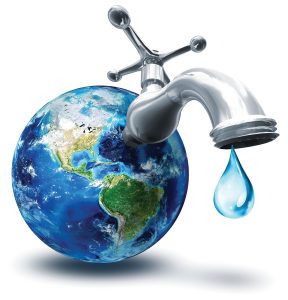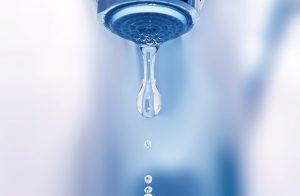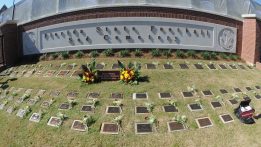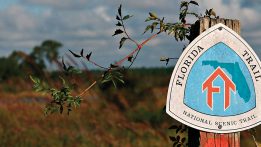 As a Floridian, you know the drill during the rainy season (better known as hurricane season): stock up on medications, gas, water and cash. Most would agree that you should have a three-day supply of these items handy in the event that your home loses power completely. While you are aware of these types of precautions, what you might not be taking into consideration is the importance of water conservation during the rainy season, even if it may sound like an oxymoron. With environmental conservation becoming increasingly more important, it is necessary to make a few, small changes in your everyday routine in order to make a big impact on our environment.
As a Floridian, you know the drill during the rainy season (better known as hurricane season): stock up on medications, gas, water and cash. Most would agree that you should have a three-day supply of these items handy in the event that your home loses power completely. While you are aware of these types of precautions, what you might not be taking into consideration is the importance of water conservation during the rainy season, even if it may sound like an oxymoron. With environmental conservation becoming increasingly more important, it is necessary to make a few, small changes in your everyday routine in order to make a big impact on our environment.
Why? Because prolonged or heavy rains can saturate the ground and cause yards, stormwater retention ponds and streets to flood, as well as overflow into sanitary sewer systems. Stormwater can then penetrate the wastewater sewer system through leaky manhole covers, cracked or broken sewer pipes, or unauthorized connections between stormwater and sewer pipes. When a sewer system exceeds max capacity, it can overflow and permeate the environment, proving to be detrimental. Fortunately, there are many ways in which you can help avoid an overflow – the most meaningful being putting less water into the sewer system – especially during heavy rains. Some tips and tricks that you can keep in your environmental-friendly arsenal to help conserve water are as follows:
Inside
- Check faucets and pipes for leaks. A small drip from a worn faucet washer can potentially waste twenty gallons of water per day, while larger leaks can waste hundreds of gallons.
- Only use your dishwasher and washing machine for full loads. When possible, avoid washing during heavy downpours.
- Use the least amount of water possible when cooking vegetables and other foods to maximize nutritional value and help decrease water usage.
- Cut down your use of the kitchen sink garbage disposal unit. Disposals require lots of water to operate properly, and also add to the volume of solids in a septic tank, which often causes maintenance issues. Instead, try composting your nutrient-rich kitchen scraps to enhance yard or garden soil – if you didn’t know, compost is like vitamins for dirt.
Outside
- If your lawn sprinkler system is on a timer, be conscious about turning it off when it rains.
- If you haven’t invested in adding mulch to your flower beds and gardens, now is the time to do so. Mulch reduces evaporation and cuts the amount of water needed in a garden by as much as 50 percent. Additionally, it prevents weed growth, deters pets, stabilizes soil temperature and provides nutrients to the soil as it decomposes.
- Harvest rain by installing a catchment area or a conveyance system to water flower beds, herb gardens and potted plants. Since rainwater is free and does not contain hard minerals like that from the hose, it is some of the best water you can give your plants.
- Before you begin landscaping, make sure to choose native plants that are adapted to the area, like the beach sunflower, tampa verbain, and firebush. These plants have a low maintenance structure that requires less water to live and will also help retain water and reduce runoff when planted on sloping land.
- Check your hose and sprinkler connections for leaks. A drop wasted each second can add up to a couple gallons of water a day.
 During the rainy season, water conservation can also prevent pollution and protect our homes from nasty overflows. But as a final point, water conservation should be important to everyone at all times of the year, since fresh, clean water is a limited resource that we must preserve. To learn more about the Statewide Comprehensive Water Conservation Program for Public Water Supply, visit the Florida Department of Environmental Protection’s water conservation website: http://www.dep.state.fl.us/water/waterpolicy/conservation.htm. Remember: each and every small, personal effort contributes to a safer, more environmentally-friendly world, so do your part.
During the rainy season, water conservation can also prevent pollution and protect our homes from nasty overflows. But as a final point, water conservation should be important to everyone at all times of the year, since fresh, clean water is a limited resource that we must preserve. To learn more about the Statewide Comprehensive Water Conservation Program for Public Water Supply, visit the Florida Department of Environmental Protection’s water conservation website: http://www.dep.state.fl.us/water/waterpolicy/conservation.htm. Remember: each and every small, personal effort contributes to a safer, more environmentally-friendly world, so do your part. ![]()
By Cherie Graves
Florida Department of Environmental Protection




